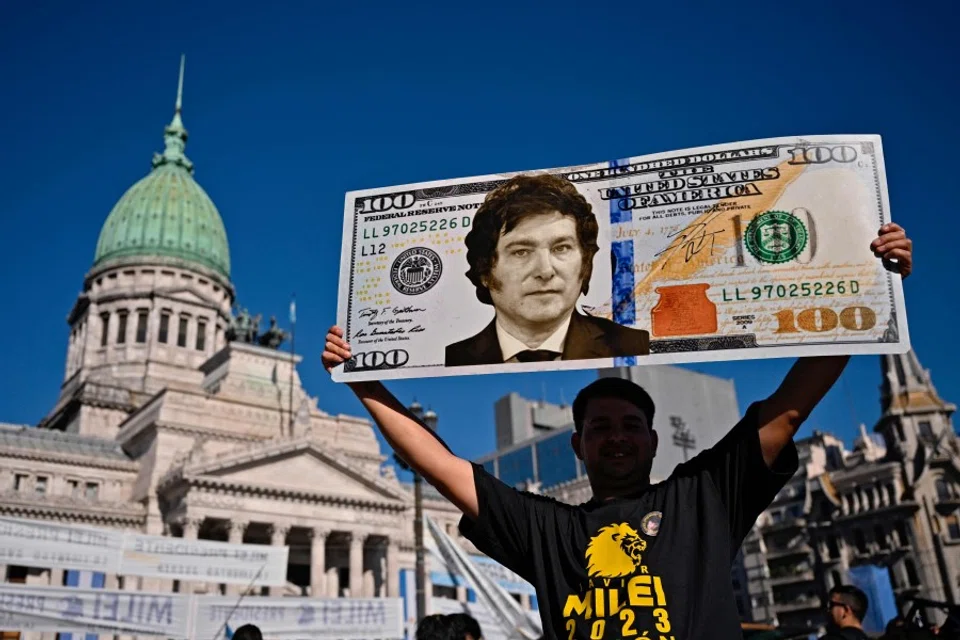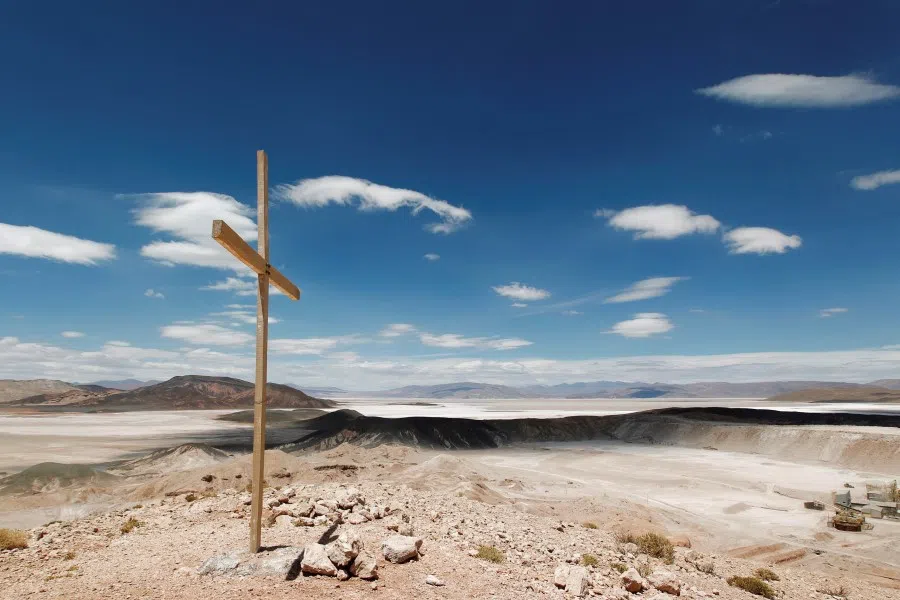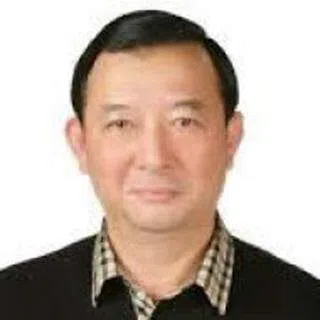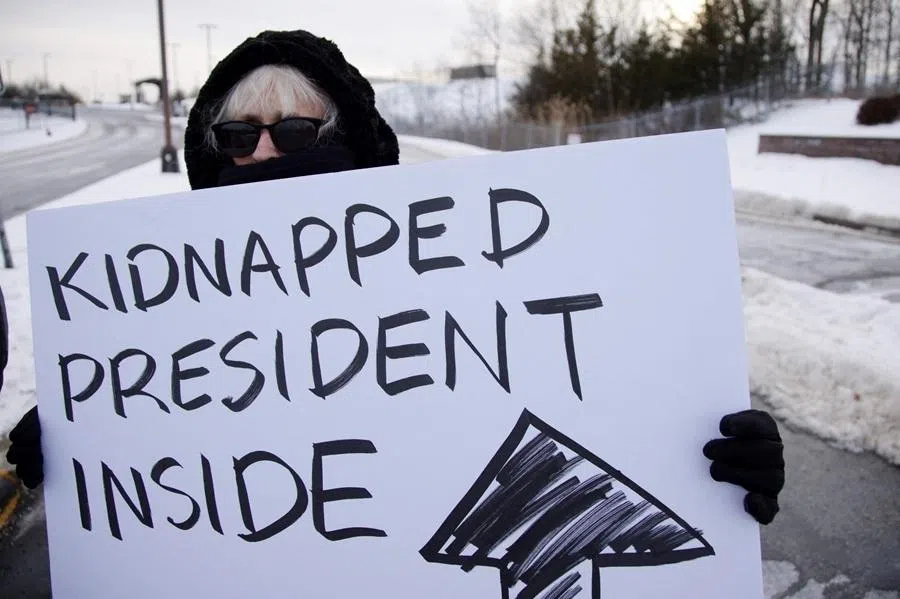Is Javier Milei the impudent ingrate in China-Argentina relations?
With Argentine President Javier Milei seemingly determined to keep a distance from China, academic Antonio C. Hsiang takes a look at Milei's strategies and how his moves are likely to affect Argentina-China relations, as well as its global relations.

Since Javier Milei took office as president in December 2023, Argentina's foreign policy has changed dramatically, as seen on two levels: global relations and China-Argentina relations.
Milei's has demonstrated his global outlook in two ways. First, his special address at the World Economic Forum (WEF) in Davos shook the world. On 16 January 2024, WEF founder Klaus Schwab introduced Milei to the stage by saying that while some describe the new president's methods as "radical", Milei has introduced "a new spirit to Argentina, making Argentina much more related to free enterprise, to entrepreneurial activities". Former US President Donald Trump and Tesla CEO Elon Musk have also highly praised Milei's speech.
The International Monetary Fund (IMF) has provided US$44 billion (S$59.3 billion) in assistance to Argentina due to Milei's immediate neo-libertarian experiment of slashing government jobs and devaluing the peso, which looks very close to the Washington Consensus. IMF managing director Kristalina Georgieva met with Milei on the sidelines of the WEF and reiterated her support for the decisive steps he is taking to reduce inflation and boost economic growth led by the private sector.
In the run-up to Argentina's presidential election last November, The Americas column of The Wall Street Journal claimed that Milei is the "only candidate who offers any hope of avoiding an economic disaster". This appears to be a fair testimony to the power of Milei's Davos speech. However, the speech has sparked controversy among China's academia.
As Argentina is battered by high inflation, Chinese products have effectively eased the pressures on Argentine livelihoods. However, all these may be thwarted by Milei taking sides.

Firing the opening salvo was Zheng Yongnian, presidential chair professor at the Chinese University of Hong Kong (Shenzhen), who argued that "Milei's speech is undoubtedly a political diatribe, just like Friedrich Hayek's The Road to Serfdom... The reverberations in China's public opinion show some people's lack of independent thought based on local experience. Of course, it also shows that China's academics indeed need a sense of urgency to construct an economic model, based on China's implementation and experience, that can explain China's economy, put forward China's economic propositions, and uncover China's solutions. Great ideas should emerge in a great era, and we cannot just blindly follow the crowd without thinking. A great nation should not be like this."
Second, Milei has emphasised his position of taking sides. After declining to join the BRICS, Milei is considering joining the Americas Partnership for Economic Prosperity (APEP), announced by US President Joe Biden at the Summit of the Americas in 2022. The APEP members include the US, Canada, Barbados, Chile, Colombia, Costa Rica, the Dominican Republic, Ecuador, Mexico, Panama, Peru and Uruguay.
The China-Argentina comprehensive strategic partnership put to the test
China and Argentina are highly complementary in terms of natural resources and industries. China is Argentina's second largest trading partner and the largest agricultural export market, while China-made goods give Argentines an enormous variety of cost-effective products. As Argentina is battered by high inflation, Chinese products have effectively eased the pressures on Argentine livelihoods. However, all these may be thwarted by Milei taking sides.
Five days after Milei's inauguration, Argentina was granted a short-term loan of US$913 million by the Development Bank of Latin America and the Caribbean to ease its debt servicing. The new Argentine government has also unilaterally halted negotiations to purchase fighter jets from China, seeking instead to purchase second-hand US F-16s from Denmark. India has signed an agreement with Argentina to co-operate in lithium mining, challenging China's current advantage in lithium mining in Argentina.
If the EU-MERCOSUR trade deal is signed, it would be the world's largest FTA and would enable the EU to play an important role in sustainable development and free trade. If the negotiations fall through, China stands to gain the most.

The Milei government's foreign policy is affecting China-Argentina relations in two ways. The first concerns the China-Argentina strategic partnership. In July 2014, to further consolidate and strengthen relations with Argentina, China President Xi Jinping visited Argentina, and had decided with the then President Cristina Fernández de Kirchner to elevate the China-Argentina strategic partnership to a Comprehensive Strategic Partnership for the longer-term development of bilateral relations. Since then, both nations have signed their first Joint Action Plan, the Cooperation Agreement for Economic and Investment Affairs, and the bilateral currency swap agreement, and held the first Strategic Dialogue on economic cooperation and coordination.
However, in an interview with The Wall Street Journal on 28 January 2024, Milei reiterated that his economic policy directions include pushing for dollar adoption, privatisation of state companies and zero deficit. He even announced that he would begin negotiations with the UK over the Falkland Islands. He added that he would not be allied with communists and that he would not consider China as Argentina's strategic partner, although he was not opposed to private companies negotiating with China.
Beijing cannot allow Milei to continue to be the ingrate in China-Argentina relations.
Roadblocks to integration
The second concerns regional integration. In November 2023, Milei threatened to withdraw from the Southern Common Market (MERCOSUR), a move that could affect China's geoeconomic position in South America. Negotiations for the EU-MERCOSUR Trade Agreement commenced in 1999, but stalled soon after the consensus in June 2019 because of the former Brazil President Jair Bolsonaro's Amazon rainforest protection policy. In May 2023, a backgrounder by the US-based Council on Foreign Relations described MERCOSUR as an elusive South American trade bloc due to two main reasons: first, it is internally fractious, and second, its member nations are divided in their views of China.
If the EU-MERCOSUR trade deal is signed, it would be the world's largest FTA and would enable the EU to play an important role in sustainable development and free trade. If the negotiations fall through, China stands to gain the most. MERCOSUR is of utmost importance in the global south and has become a target with whom global powers seek an alliance. However, due to the uncertainty of Argentina's position, it is also difficult for the grouping to reach a consensus.
Of course, Beijing cannot allow Milei to continue to be the ingrate in China-Argentina relations. China Foreign Minister Wang Yi met with Argentina Foreign Minister Diana Mondino at the Munich Security Conference on 17 February 2024 to reiterate China's commitment to maintaining strong relations, but its outcome remains to be seen.
This article was first published in Lianhe Zaobao as "米莱是中阿关系的白眼狼?".





